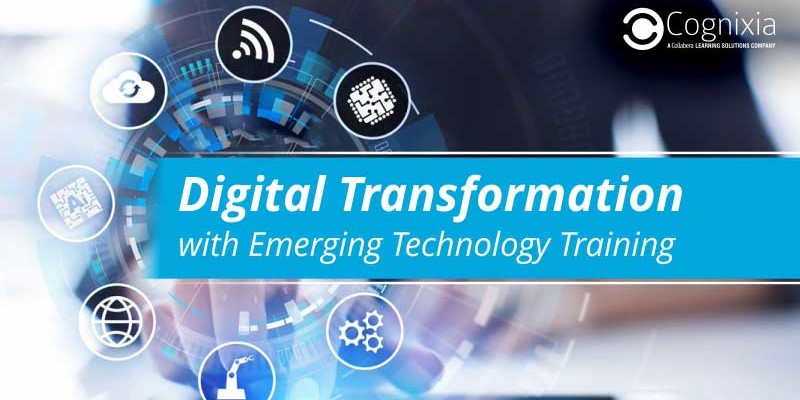The business world is rapidly changing in the ways it operates. This is due to the changes in customer behavior and experiences, and how enterprises compete with one another to increase their customer base. Also, technological advancement with globalization is transforming every sector. Job seekers today have to be up on their toes to fill their repertoire with cutting-edge skills because the nature of jobs and the skills needed to perform these jobs is also consistently changing. We have come to a point now where one-time learning is not sufficient to thrive. If one wants to stay relevant in the job market, one has to keep learning for the rest of his or her life.

According to the Digital Transformation Index 2018 (that has studied more than 1000 American and European countries), 37 percent companies believe that digital transformation led to the creation of new jobs, while 30 percent say that there was no change at all.
The Inevitability of Digital Transformation for Enterprises
When we talk about transformation in enterprise operations and management, digital transformation comes naturally to everyone’s mind. Such has been the impact of digitalization since a few decades now. It is a well-known fact that the one who refuses to align oneself with the on-going innovative trends, is destined to remain behind with limited means. No enterprise must harbor this contentment and be at the risk of fading away.
The relationship between digital transformation and technology is generally average or above average for about 76% companies worldwide.
Digital transformation is a change of mindset where every employee in the organization is made digitally aware. This awareness leads to the improvement of processes and operations ultimately serving the customers in a better way and driving significant revenue for the enterprises. The adoption of new technologies or adapting to the existing ones is what digital transformation utilizes, with the aim of enhancing business efficiency. Automation and cognitive computing have a significant role to play in the digital transformation of enterprises.
Transforming Emerging Technology Training
Amidst digital transformation of enterprises, technology training is also experiencing a transformation. The thought leaders in the training industry must realize the importance of enhancing technology training itself with the emerging technologies. Training providers must ensure new learning experiences, armed with digitally ready tools that can do away with redundancy and re-learning. The proliferation of Machine Learning and AI has changed the dynamics of learning by creating more personalized and relevant experiences for the learner. With Augmented Reality (AR) and Virtual Reality (VR), the learning and development industry can go deeper into conceptualization with real-time simulations. Edge Computing and IoT make smart devices that can prove to be favorable for hands-on experiments. Resting on the huge chunks of data generated every second around the world, Big Data Analytics can provide meaningful insights that can be leveraged to make significant amendments in the learning and development platforms.
According to Forbes, the top 5 technologies implemented by most of the companies globally are Big Data/Analytics (58%), mobile technologies (59%), private cloud (53%), public cloud (45%) and APIs and embeddable technologies (40%).
In essence, leaders in the emerging technology training industry must take proactive measures rather than reactive measures while planning and developing learning and development strategies. Emerging technology training transformed in the right way and in the right direction can only make the digital transformation in enterprises seamless and successful.
The Convergence of Learning & Development with Digital Transformation
The roadmap of digital transformation for enterprises will be smooth, without barriers, if emerging technologies are their constant companions. Enhancing learning and development can make emerging technology training successful. The convergence of these two marks the beginning of a productive endeavor for the enterprises.
Forbes states that 89% of enterprises have plans to adopt or have already adopted a digital-first business strategy.
Digital transformation strategy is not about removing existing employees and hiring new ones, but inculcating the skills conducive to the success of enterprise operations and processes. Powered with emerging technologies, learning must be accessible anytime, anywhere. Organizations must follow a top-down approach towards learning and development where learning is led by the leaders who also bind metrics to evaluate their teams’ progress. When it comes to emerging technology training for the digital transformation of the enterprises, always remember that the leaders of the organizations are the best teachers, while the business itself is the course curriculum.

